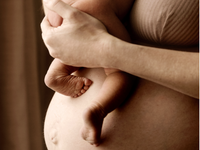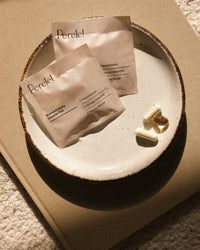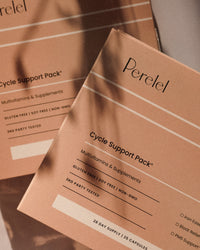Let’s be honest: The idea that there’s one “right” time to start a family is outdated—and unrealistic. For many women, the most fertile years coincide with career-building, self-discovery or simply waiting to find the right partner. That’s where egg freezing steps in; not as a guarantee, but as a powerful, science-backed option to protect your future choices.
Whether you’re feeling curious, conflicted or already scheduling your first consult, we created this explainer to demystify the process. Because freezing your eggs isn’t just a medical decision, but also an emotional one. And you deserve clear answers, grounded support and zero judgment every step of the way.
Egg freezing has been dramatically on the rise—and for good reason. It’s a revolutionary approach to preserving your ability to get pregnant.
What is egg freezing, exactly?
Eggs are taken from your ovaries and frozen in a lab—the idea being that they might be thawed and used to get pregnant later on.
The technical term for this: oöcyte cryopreservation.
Shop the Article:
How does it work?
Your ovaries are stimulated with hormones so that you’ll make multiple eggs. Those eggs are retrieved using a needle and suction device. Then they’re taken to a lab, where they’re stored in subzero temperatures.
If you decide to thaw and use any of your eggs, you’ll have to go through in vitro fertilization (a.k.a. IVF).
What all is involved?
You have to inject yourself with two to three hormone medications every day for 10 to 12 days.
During that time, expect lots of ultrasounds and blood draws to check on egg development.
Once they’re ready, your eggs will be removed through a 20 to 30 minute outpatient surgical procedure under anesthesia.
What does it feel like?
All those hormone shots can make you feel moody or emotional, but it varies from person to person.
Even without the hormones, the process can be emotional. So many different feelings can come up around parenthood, from excitement to fear.
The egg retrieval process shouldn’t hurt because you’ll be under anesthesia.
Why might egg freezing be a good option for me?
Lots of folks aren’t ready to have kids when they’re most fertile.
The reasons for that range from needing to focus on a career to wanting to find the right co-parent. Seventy-five percent of women who freeze their eggs do it because they don’t have a partner.
Sometimes folks do it to preserve their eggs in the face of life events like cancer treatment.
At what age should I freeze my eggs?
Lots of doctors suggest freezing your eggs at 34. Around age 37, your egg supply starts to dwindle at a faster pace.
How much does egg freezing cost?
It depends on your insurance. If you’re uninsured, it can cost anywhere from $6,000 to $20,000.
There are also costs for egg storage—anywhere from $500 to $1,000 a year.
If you decide to use any of your frozen eggs, you have to undergo IVF and each round costs between $3,500 to $5,000.
What is the general success rate?
Generally, the chance of having a successful pregnancy from frozen eggs is 39 percent, but age plays a crucial role. That rate rises to 51 percent among women who were younger than 38 when they froze their eggs.
How do I talk about egg freezing to my people?
Here are a few conversation starters to say to your:
Friend:
“You know how much I want to be a mom, but I don’t think I can do it alone and I really want to find the right partner. So, I decided to freeze my eggs!”
“I want to have a baby one day, but that’s a ways off. I made an appointment to talk about egg freezing.”
“Will you come with me to my egg retrieval appointment? I’d love a little support because I have so many emotions tied up in this whole thing.”
Partner:
“Since we’re not sure about whether we want kids, I think we should talk about egg freezing. I wanna keep my options open.”
“We’re obviously not ready for kids right now, but I know we both want to be parents eventually. What about egg freezing?”
“Obviously, we see a future together as parents, as long as things keep working out between us. I’d love to feel like we’re both investing in that future. What do you think about splitting the cost of egg storage?”
Takeaways
Let’s look back at a few key takeaways.
-
Eggs are taken from your ovaries and frozen in a lab. If you decide to thaw and use any of your eggs, you’ll have to go through IVF.
-
To ready your eggs, you have to inject yourself with two to three hormone medications every day for 10 to 12 days. Expect lots of ultrasounds and blood draws, too.
-
Eggs are removed through a 20 to 30 minute outpatient surgical procedure under anesthesia.
-
Lots of doctors suggest freezing your eggs at 34. Around age 37, your egg supply starts to really dwindle.
-
If you’re uninsured, egg freezing can cost anywhere from $6,000 to 20,000.
-
Generally, the chance of a successful pregnancy from frozen eggs is 39 percent, but age plays a major role.
This article is for informational purposes only. It is not, nor is it intended to be, a substitute for professional medical advice, diagnosis, or treatment and we recommend that you always consult with your healthcare provider. To the extent that this article features the advice of physicians or medical practitioners, the views expressed are the views of the cited expert and do not necessarily represent the views of Perelel.
Resources:
Egg freezing. UCLA Health System. (n.d.). https://www.uclahealth.org/medical-services/obgyn/fertility/egg-freezing
McHaney, S., & Jacobson, R. (2014, December 10). 7 things every woman should know before freezing her eggs. PBS. https://www.pbs.org/newshour/science/freeze-eggs#:~:text=The%20process%20of%20egg%2Dfreezing,thawed%20at%20a%20later%20date. https://www.pbs.org/newshour/science/freeze-eggs#:~:text=The%20process%20of%20egg%2Dfreezing,thawed%20at%20a%20later%20date
Cross, C. (2023, February 17). Freezing eggs: Preserving fertility for the future. Freezing Eggs: Preserving Fertility for the Future | Johns Hopkins Medicine. https://www.hopkinsmedicine.org/health/wellness-and-prevention/freezing-eggs-preserving-fertility-for-the-future
Symmetry Counseling. (2022, May 5). Therapy Chicago: How does freezing my eggs affect my mental health?. Symmetry Counseling. https://www.symmetrycounseling.com/blog/how-does-freezing-my-eggs-affect-my-mental-health/#:~:text=Mood%20Changes,being%20more%20teary%20than%20usual.
Literally every single thing that happens when you freeze your eggs. Cosmopolitan. (2023, May 30). https://www.cosmopolitan.com/health-fitness/a36718692/egg-freezing-tips-cost-faqs/#why
McHaney, S., & Jacobson, R. (2014a, December 10). 7 things every woman should know before freezing her eggs. PBS. https://www.pbs.org/newshour/science/freeze-eggs#:~:text=The%20process%20of%20egg%2Dfreezing,thawed%20at%20a%20later%20date.
Kolata, G. (2022, September 23). “sobering” study shows challenges of Egg Freezing. The New York Times. https://www.nytimes.com/2022/09/23/health/egg-freezing-age-pregnancy.html. https://www.ncbi.nlm.nih.gov/search/research-news/17185/





























